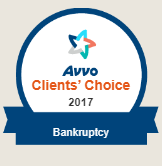Many consumers in California recognize that a crisis like a job loss or medical emergency can force someone to borrow money. Credit card marketing and the temptation of payday loans represent two more forces that can push people into taking on debts that they cannot repay.
Credit card issuers entice people to make purchases with rewards programs and zero percent interest balance transfer offers. For consumers who have the funds to charge purchases for the purpose of earning reward points, the program presents little danger of driving someone into debt. Trouble arises, however, when people plan to pay off a credit card but then an emergency prevents them from making the full payment. Interest charges result and erase any benefits enabled by rewards. In some situations, switching a high-interest debt to an account with a zero percent introductory offer makes sense. When people take this route, they should avoid charging any new purchases on the card even during a no-interest period. New purchases will drive up the balance that will become exposed to interest charges in the near future.
Payday loans take people even closer to the edge of financial ruin. The fees and massive interest rates charged for these short-term loans pull people deeper into the downward spiral of debt. The Consumer Financial Protection Bureau reports that most payday borrowers either cannot pay off their loans on time or get new loans within 14 days.
When a person does not have any ability to meet debt payments and living expenses, bankruptcy law might offer a second chance. A conversation with an attorney may inform a person about how to qualify for Chapter 7 bankruptcy and discharge credit card debts. An attorney may be able to file the court paperwork and manage any issues that come up with creditors during the process.



